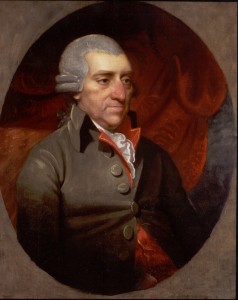Our journey
We have come a long way since 1866, but there is still so much more to do.
At the Howard League, we believe the answers to crime lie not in the criminal justice system, but in a fairer and equitable society, one investing in education, housing, employment and health.
We believe that everyone is better than their worst moment or decision, and that excessive punishment harms the fabric of society. We believe in second chances and the ability of people to change.
Founded as the Howard Association in 1866 by admirers of the 18th-century penal reformer John Howard, we began with the aim of “promotion of the most efficient means of penal treatment and crime prevention” and to advocate “a reformatory and radically preventive treatment of offenders”. In 1921, the Howard Association merged with the Penal Reform League and the charity moved forward with a new name, The Howard League for Penal Reform.
Our early years were characterised by innovation at home and influence abroad. We were involved in the creation of the probation service and the Magistrates’ Association, and we monitored important developments in other jurisdictions, just as John Howard had two centuries earlier.
We have fought many successful and influential campaigns. In 1948 we incorporated the National Association for the Abolition of Capital Punishment; the death penalty was abolished in Great Britain in 1965. Our work led to the establishment of the fund to compensate victims of crime. Our high-profile Books For Prisoners campaign overturned restrictions on sending books to people in prison.
We have led major inquiries. The Commission on English Prisons Today probed the purpose and limits of a penal system and provided a road-map for long-term and fundamental reform. Our Inquiry into Former Armed Service Personnel in Prison considered how support could be improved for people coming out of the armed services in order to prevent crime and their ending up in custody. The Commission on Sex in Prison sought to understand the nature and scale of sex in prisons, investigated the key issues and problems, and recommended ways to make prisons safer. The Commission on Crime and Gambling Related Harms was the first inquiry of its kind to look specifically at the links between crime and gambling.
We have helped to transform law, policy and practice for children and young adults caught up in the system. We fought a landmark legal case in 2002, which changed the law to ensure that the protections of the Children Act 1989 apply to children in custody. We worked with police forces across England and Wales to reduce child arrests by more than 70 per cent.
Our work is complemented by an international peer-reviewed journal, The Howard Journal of Crime and Justice, which is committed to publishing high-quality theory, research and debate on all aspects of the relationship between crime and justice across the globe.
We have come a long way since 1866, but there is still so much more to do. Please consider becoming a Howard League member and join us on our journey as we keep working for less crime, safer communities and fewer people in prison.
In June 2023, we held a Spotlights event to consider John Howard’s life and achievements and study the early years of the Howard League in more detail.
Watch the video below to hear the thoughts of Professor Fergus McNeill, Chair of the Howard League and author of a response to the Monument of John Howard in St Paul’s Cathedral, and Jess Kebbell, presenting findings from her research into the history of the Howard League.
-
Join the Howard League
We are the world's oldest prison charity, bringing people together to advocate for change.
Join us and make your voice heard -
Support our work
We safeguard our independence and do not accept any funding from government.
Make a donation
